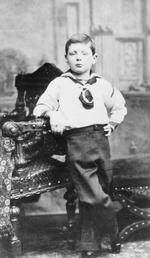
Ireland
| Full Name | 52 Republic of Ireland | |
| Alliance | Neutral or Non-Belligerent | |
| Population in 1939 | 2,960,000 | |
| Military Deaths in WW2 | 10,000 | |
| Civilian Deaths in WW2 | 200 |
Contributor: C. Peter Chen
ww2dbaseOn 29 Dec 1937, the second Constitution of Ireland came into force, officially transitioning the Irish Free State into the Republic of Ireland. Although it remained a Dominion under British sovereignty, Ireland sent representatives to Commonwealth conferences. The 1931 Statute of Westminster gave each of the Dominions the decision power on whether to join the United Kingdom in war; while other Dominions such as Australia, Canada, India, and Newfoundland sided with Britain at the onset of the European War, Ireland chose to exercise the power given in 1931 and remained neutral. As a precaution, however, the government granted itself emergency powers to prepare for an invasion by either the Germans or the Allies; as it would turn out, both sides of the war would conduct invasions against neutral nations during the course of the European War. While hostile German invasion was genuinely a possibility, a defense against a British invasion was somewhat nominal. While it was true that British leaders such as Prime Minister of Northern Ireland Lord Craigavon advocated an attack on Ireland, Irish head of government (Taoiseach) Éamon de Valera and British Prime Minister Winston Churchill were on relatively friendly terms. In fact, Irish and British officials had informally agreed upon a British military entry into Ireland in response to German hostility, should de Valera request so. Irish military intelligence also shared vital information with their British counterpart. When the news of Adolf Hitler's death reached Ireland, as the head of a neutral state, de Valera officially expressed his condolence to the German Legation in Ireland; this would spark controversy among Allied nations.
ww2dbaseDespite of Ireland's neutral status, it suffered some casualties in WW2. On the high seas, Irish merchant ships were misidentified and attacked by both the Allies and the Axis, although most sunken Irish ships were victims of German submarines. From the air, German bombers at times mistakenly dropped their bomb loads on Irish territory; for example, Wexford was attacked in Aug 1940 and Dublin was attacked in May 1941.
ww2dbaseWhile the government remained neutral, there were small groups in Ireland that took sides. Over 50,000 Irish citizens fought with the British military and the British merchant marine (10,000 would be killed in British uniforms), while 245,000 Irish citizens traveled to Britain for work, some of which war related. On the opposite side of the token, some sought after friendship with Nazi Germany as a means to achieve true independence, but ultimately this did not result in anything of consequence in the European War.
ww2dbaseAfter the war, Ireland continued the course to sever itself from the United Kingdom. On 18 Apr 1949, Ireland declared itself a true republic, thus cutting the last link with the British monarchy.
ww2dbaseSource: Wikipedia
Last Major Update: Aug 2014
| People | ||
| Saul, Richard | Vereker, John | |
Photographs
 |
Ireland in World War II Interactive Map
Please consider supporting us on Patreon. Even $1 per month will go a long way! Thank you. Please help us spread the word: Stay updated with WW2DB: |

- » Wreck of Teruzuki Found (27 Jul 2025)
- » USS Orlean's Bow Found (22 Jul 2025)
- » The Emperor of Japan Planned to Honor WW2-era Japanese POWs in Mongolia (4 Jul 2025)
- » US State Lawmaker John Winter Caught Using Racial Slur "Jap" and Apologized (11 Jun 2025)
- » US Government Plans to Purge WW2 Information (17 Mar 2025)
- » See all news
- » 1,181 biographies
- » 337 events
- » 45,111 timeline entries
- » 1,246 ships
- » 350 aircraft models
- » 207 vehicle models
- » 376 weapon models
- » 123 historical documents
- » 261 facilities
- » 470 book reviews
- » 28,473 photos
- » 365 maps
James Forrestal, Secretary of the Navy, 23 Feb 1945
Please consider supporting us on Patreon. Even $1 a month will go a long way. Thank you!
Or, please support us by purchasing some WW2DB merchandise at TeeSpring, Thank you!